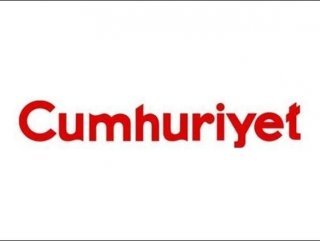Turkish Newspaper Editor in Court for ‘Espionage’ after Revealing Weapon Convoy to Syrian Militants

A Turkish prosecutor asked a court to imprison the editor-in-chief of Cumhuriyet newspaper pending trial for espionage and treason. In May, the outlet published photos of weapons it said were then transferred to Syria by Turkey’s intelligence agency.
Besides the editor, Can Dündar, the prosecution said it is seeking the same pre-trial restrictions for Cumhuriyet’s representative in Ankara, Erdem Gül.
Dündar arrived at an Istanbul court on Thursday, saying that he and his colleague “came here to defend journalism.”
“We came here to defend the right of the public to obtain the news and their right to know if their government is feeding them lies. We came here to show and to prove that governments cannot engage in illegal activity and defend this,” Dündar was cited by Today’s Zaman.
The articles, published on Cumhuriyet’s front page in May, claimed that Turkey’s National Intelligence Organization (MİT) is smuggling weapons in trucks into Syria and was caught doing so twice in 2014. The trucks were allegedly stopped and searched by police, with photos and videos of their contents obtained by Cumhuriyet.
According to the paper, the trucks were carrying six steel containers, with 1,000 artillery shells, 50,000 machine gun rounds, 30,000 heavy machine gun rounds and 1,000 mortar shells. The arms were reportedly delivered to extremist groups fighting against the Syrian government of President Bashar Assad, whom Ankara wants ousted from power.
The Turkish authorities denied the allegations, saying that the trucks were carrying aid to Syrian ethnic Turkmen tribespeople and labeled their interception an act of “treason” and “espionage.”
Pelin Batu, Ba Turkish TV presenter who worked alongside those who were detained, said that all they had done “was done in the interests of the country … because our involvement in Syria needed to be brought into question.”
“I don’t think this could be judged as treacherous in any way,” Batu told RT, adding that Dundar was always a “pacifist.”
Batu says the editor-in-chief fought for freedom of speech which has been under threat in Turkey since Erdogan took power.
“For the last year or so the freedom of press has been axed in so many ways,” she told RT.
A 2014 report by Human Rights Watch warned that under Erdogan’s rule Turkey has seen the erosion of human rights via a crackdown on media freedom, dissent and a weakening of the rule of law.
Many journalists in the country are facing harsh prison terms for exposing corruption in the government and surveillance by the Turkish state.
Egdogan’s regime has also attempted to silence social media by blocking YouTube and Twitter on a number of occasions.
Prior to November’s general election, Turkish police stormed the offices of opposition media group Koza Ipek.

